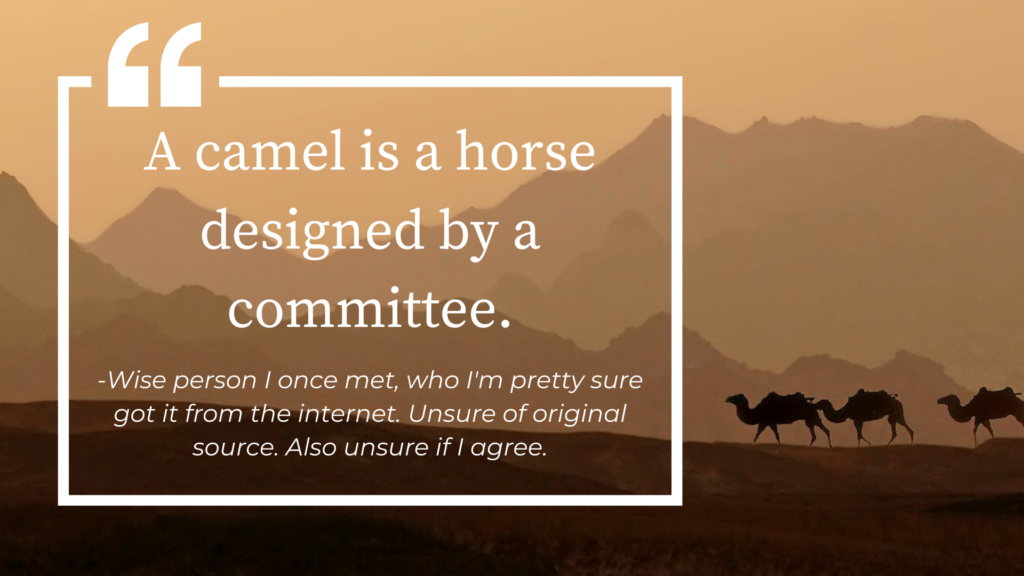I’ve been thinking (a lot) lately. And I keep coming back to, “What could we actually accomplish if we worked together towards a common goal, instead of in our own little silos?”
The Building Code is really about people. The requirements are in place to protect people, including the firefighters who risk their lives to protect us. If the Code is about people:
- Why is it so hard to apply the standards?
- Why are building and fire departments and their employees often treated as a public enemy?
- Why, in 2020, am I still figuring out the allowable window sizes in a building with a home-made double interpolation spreadsheet or worse, calculating them by hand or using online calculators?
- Why is this niche knowledge so scarce?
- What could we accomplish if this knowledge became easily accessible and abundant?
A little more understanding?
I have worked both as a building official enforcing the building code as the Authority Having Jurisdiction (AHJ) and as a code consultant with a private firm. I’ve encountered designers who fought tooth-and-nail to evade and argue their way out of minimum requirements. I have also encountered those who went above and beyond expectations to ensure code was met even when the jurisdiction they were working in didn’t have the capacity to adequately review and enforce. I’ve come across so many owners who have absolutely no idea that they are ultimately responsible for code compliance in their buildings. I’ve seen it all.
At the end of the day, we are all just people trying our best to do our jobs. I’ve always said that it takes a village to ensure code compliance, and it’s the foundation in which Kilo Lima is built upon. If we all approach from an understanding that the code really is about people… I think a lot of the conflict would melt away.
What if we shared information?
I am about 99% positive that every municipality, architectural firm and code consultant has their own little library of “resources”: provincial interpretations, municipal advisories, useful articles, products approved for specific applications, etc.
It makes me wonder: how much time and energy would be saved if we shared this information? And how much could we improve the industry if we got that time back? What if we could easily find out what sustainable products met code for specific applications? Or easily learn how to apply best practices to make our buildings more inclusive?
If you’ve already thought about these things, please contact us. We’d love to connect and let you know how we’re going to fix this!
[convertkit form=1987179]
Bottom up approach?
There are so many dedicated code professionals, architects, and AHJs working their tails off in their own little silos, wanting to see radical change but only making a small dent. I know this, because I was/am one…and know many more. Some of them are Kilo Lima’s Villagers, and some of them I have not yet met.
I had a conversation with a colleague in the industry earlier this year who stated that “a camel is a horse designed by a committee”. Although I do get where he was coming from, I also know that we need committees. So I only half agree. Committees are working hard just like the rest of us, but with their own barriers.

What if we can trickle information up, so committees have an easier time moving forward, and can then trickle the information back down?
What if we had tools to easily engage with committees to have more collaborative conversations?
What next?
Well, I’m glad you asked! Here at Kilo we’ve got some awesome ideas cooking…but I know that with even more input we can make this even better together.
Have these questions sparked some interest? Reach out to us through the website. DM me on LinkedIN. Tell your friends to join our movement!


10 Responses
I’ve got one of those home-made double-interpolation spreadsheets for calculating window openings that I’m willing to share with everyone if you’re interested.
Thanks Nelson! I actually came across a tool that can be downloaded and Darrell Saby coded. I’m working on getting it linked on the site…but until then you can find it on his LinkedIN page. Happy calculating!
Thanks for this great article Kelsey! I couldn’t agree more – “we are all just people trying our best to do our jobs” – I think that more collaboration and tool-sharing will further the industry for the better.
Thanks Melinda! I’m pretty passionate about collaboration (if you couldn’t tell).